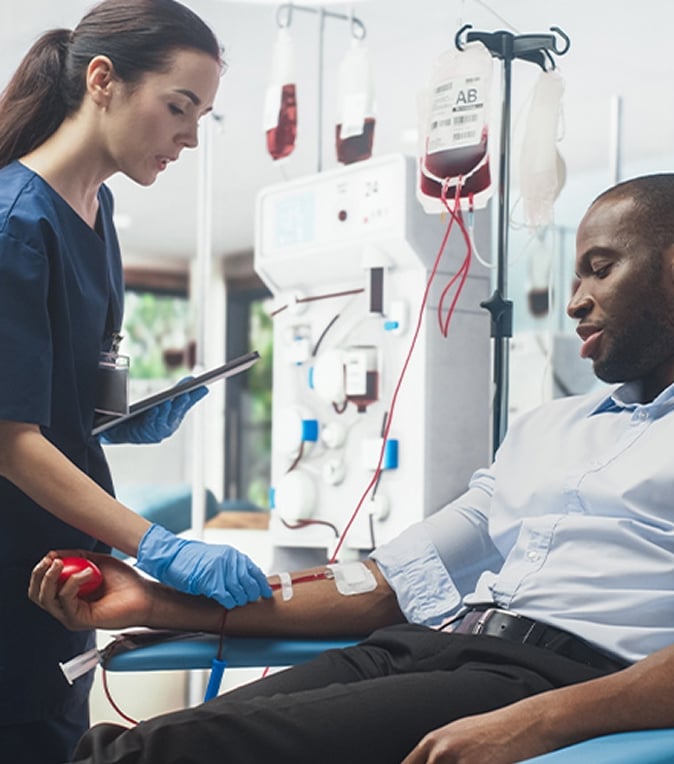Gynecologic Cancer
At MetroHealth, our multidisciplinary team offers personalized, state-of-the-art treatment for gynecologic cancers: ovarian, cervical, uterine, endometrial and vulvar cancers.
If you’ve been diagnosed with gynecologic cancer, turn to MetroHealth’s experts for specialized cancer care.
Stay tuned into your body
While gynecologic cancers are uncommon, they are diagnosed in about 100,000 women in the United States each year.
Most gynecologic cancers are commonly diagnosed in post-menopausal women. However, there are always exceptions, and we are seeing younger women diagnosed with uterine cancer and cervical cancer.
For gynecologic cancers—cancers that start in the female reproductive organs—it is important to pay attention to symptoms and seek regular care from an OB/GYN.
If you are experiencing menopausal bleeding, abnormal menstruation, bloating, abdominal pain, pelvic pain, back pain, or any changes to urination, schedule an appointment with your OB/GYN to discuss your symptoms.
Preventing Gynecologic Cancers
While one of the biggest risk factors for gynecologic cancer is your family history, there are still a number of things you can do to help prevent cervical, ovarian, uterine, vaginal, and vulvar cancers.
- When you’re 11 or 12 years old, get the HPV vaccine to help prevent cervical cancer. The CDC recommends vaccination through age 26.
- Obesity is a risk factor for many gynecologic cancers.
- Visit your OB/GYN yearly and follow their recommendation for pap smears to detect precancerous cells.
- Smoking is a risk factor for all cancer, but especially vulvar cancer.
- Seek genetic counseling and testing if you have a family history of ovarian cancer or breast cancer before the age of 45, or if you have had endometrial cancer or colon cancer before the age of 50. Genetic testing can check your risk for certain types of cancers.
MetroHealth offers next-generation genetic testing for advanced cancer, such as BRCA-1, BRCA-2, mutations that cause Lynch syndrome, BRIP and PTEN.
Regular screenings save lives
Regular pap smears—usually every 3 years for women ages 21-65 — are the most important screening tool available for gynecologic cancers.
Some gynecologic cancers are caused by genetic makeup, so knowing your family history is important. If you have a family history of gynecologic cancer, talk to your OB/GYN about having blood work to understand your risk and prevention options.
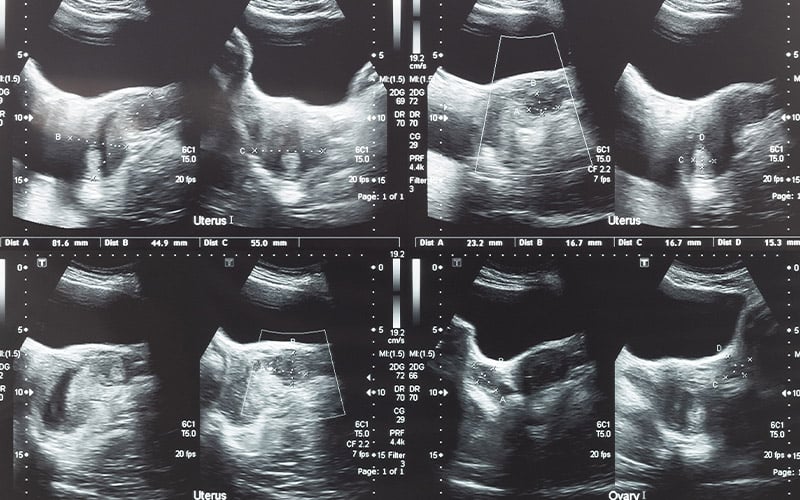
Detection of gynecologic cancers often relies on the early identification of symptoms.
Common symptoms of gynecological cancers include:
- Abnormal vaginal bleeding
- Bloating
- Feeling full too quickly or difficulty eating
- Fatigue
- Abdominal, back or pelvic pain
- Frequent or urgent need to urinate and/or constipation
- Nausea
- Leg swelling
Remember, it’s never normal to bleed after menopause and your period doesn’t simply “come back.” If you are experiencing post-menopausal bleeding, seek medical attention as soon as possible.
Additionally, if you are experiencing any of these symptoms, schedule an appointment with your OB-GYN or Primary Care Provider (PCP) as soon as possible and be open and honest about your symptoms.
Personalized Gynecologic Cancer Treatment
Different types of gynecologic cancers may be treated in different ways, and we rely on a range of advanced therapies to meet your individual needs, including surgery, radiation and chemotherapy. At your first visit, your doctor will review your medical history, imaging and lab results, and pathology reports. Your doctor will also perform a physical exam and a pelvic exam. Using all this information, your doctor will put together a personalized treatment plan that takes into consideration your lifestyle and future plans while treating your gynecologic cancer as effectively as possible.
The most important part of treatment at MetroHealth is the relationship you build with your provider. We have the tools of a large academic cancer center with the friendly feel of a community hospital. For instance, if you need chemotherapy, you may have the same nurse give you your treatment each time. This close, one-on-one relationship is vital to understanding your symptoms, how you’re responding to treatment, and how to walk alongside you during your care journey.
Your surgery and following treatment will take place at The MetroHealth Glick Center, our new 11-floor hospital on the system’s main campus.
Your treatment options may include:

Gynecologic Surgery
Your surgery will be performed at The MetroHealth Glick Center on a floor dedicated to cancer care. That means your entire care team knows how to best care for cancer patients.
Often we can perform minimally invasive surgeries—like robotic or laparoscopic surgery. That way you can recover faster and spend less time in the hospital.

Gynecologic Chemo and Radiation
After you’ve had surgery, you may need additional treatment. All chemotherapy and radiation therapy happens at the Outpatient Services Pavilion at MetroHealth Main Campus. With a team devoted to your cancer care, your treatment happens quickly with short wait times. We also provide chemotherapy at two satellite locations: MetroHealth Parma and MetroHealth Cleveland Heights.
Our team will schedule every appointment you need, so you never need to worry about follow-up appointments, scans and lab work.
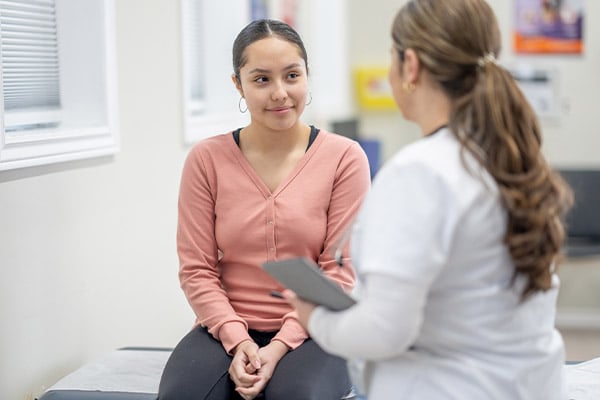
Reproductive Endocrinology
Some cancer treatments can affect your fertility after cancer. Our gynecologic oncologists can work with our reproductive endocrinology specialists to help you meet your family planning goals.
Recovering from Gynecologic Cancers
At MetroHealth, you’ll receive care from our oncology team that has been recognized by the American College of Surgeons for the highest possible level of training and expertise.
Our team will talk to you about survivorship – going over your diagnosis in detail, including what to expect from treatment, long-term side effects and how to prevent recurrences.
You’ll benefit from integrated behavioral health services every step of the way, because mental health plays a vital role in well-being.
We partner with American Cancer Society, The Greater Cleveland Food Bank, and other community organizations to provide support, resources, and care for patients and families.
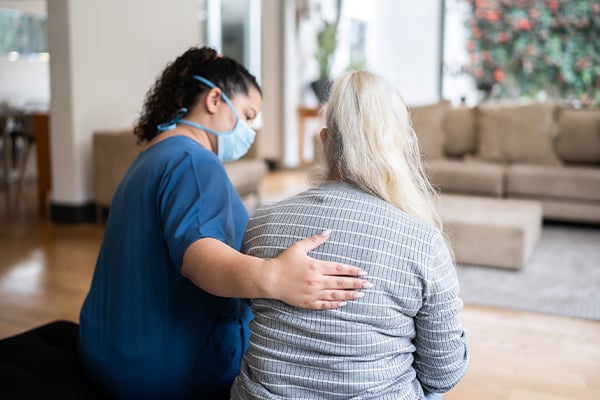
Social Workers Available
MetroHealth provides a social worker to help patients navigate their gynecologic cancer journey and connect with resources. Call 216-778-8204 to connect with a social worker.

The Gathering Place
MetroHealth partners with The Gathering Place to provide individual, group, and family support services, including nutrition and exercise programs, the Regina Brett Wig Salon, special programs, and legal or financial consultation.
Looking for a Second Opinion?
Have you recently received a gynecologic cancer (female cancer) diagnosis that you would like a second opinion on? The MetroHealth Gynecologic Cancer team is here to help. Please fill out our form, and one of our care team members will follow up with you to discuss next steps.

Advancing Care Through Research
At MetroHealth, every oncologist participates in research, bringing advances in cancer care directly to your bedside. We address health disparities by enrolling people from minority populations in clinical trials at more than 4 times the national average.
For more information about our studies, or to enroll in a study that might be right for you, contact our oncology team at 216-77-TREAT.
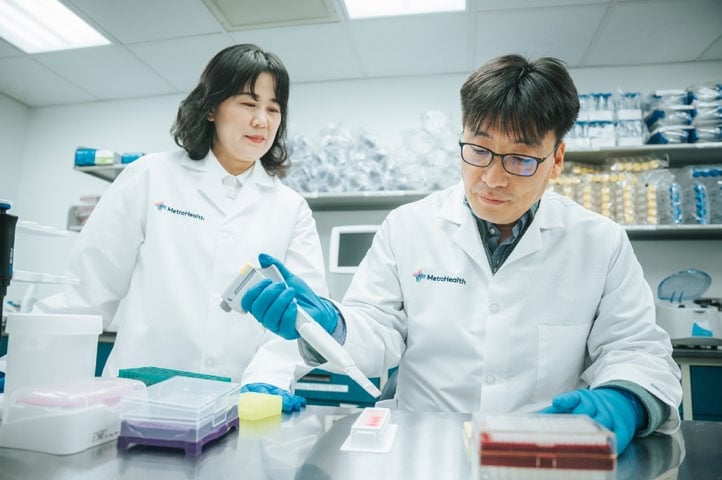


A Team Dedicated to You
The MetroHealth Cancer Institute team is setting a new standard of cancer care in northeast Ohio. MetroHealth offers unmatched, state-of-the-art, and personalized cancer care.
